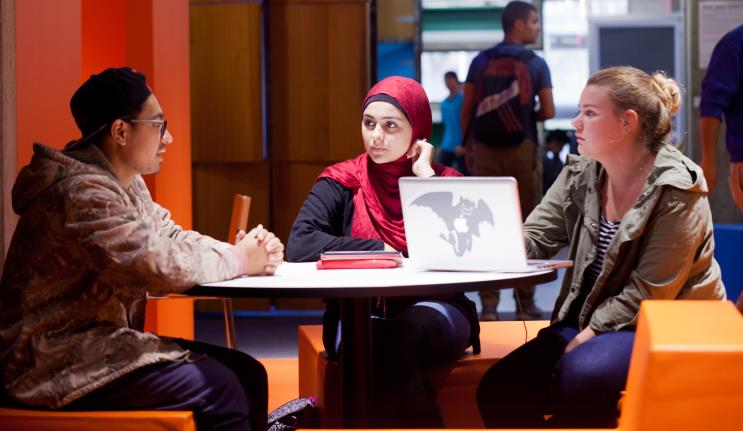
RESEARCH NEWS
Reaching for the future
Over the past few months the Macquarie community has united to define the University’s long-term goals and the elements that will make it distinctive within Australia and around the world.
This process led to the development of the Strategic Research Framework 2015 – 2024: World-Leading Research; World-Changing Impact, which is designed to guide Macquarie University’s research trajectory over the decade 2015 – 2024.
World-leading research; World-changing impact outlines five research priorities: Healthy people, Resilient societies; Prosperous economies; Secure planet; and Innovative technologies. These five priorities are underpinned by areas of current and emerging research strength.
Professor Sakkie Pretorius, Deputy Vice-Chancellor (Research), says “as a University we have an important responsibility to add value with the research we choose to pursue. Seizing the opportunity to collaborate with industries, governments, communities, professions and academic colleagues here and around the world is paramount to our success.”
We will be exploring some of the exciting projects occurring within each of the five priorities in upcoming editions of Macquarie Matters, starting with Healthy People.
Support networks
The first priority, Healthy people, focuses on the themes of pioneering health, integrated healthcare and lifelong learning for wellness in our ageing world.
With constrained health budgets becoming an increasing factor in the future, Macquarie is also getting behind projects that are able to help people online, giving them access to much needed expert support without the challenge of having to come into a clinic.
Dr Blake Dear, for example, has developed an online chronic pain management program that will help the hundreds of thousands of Australians who experience anxiety, depression and disability related to their level of pain, but may not have access to specialist assessment and treatment, due to long waiting lists and limited service availability. To overcome this, Dr Dear and his team developed the Pain Course, which provides helpful information and teaches practical, evidence-based skills for managing pain, anxiety and depression.
Professor Nick Titov is the driving force behind the MindSpot Clinic, a free telephone and online therapy service that deliver treatment to thousands of Australian adults troubled by symptoms of anxiety or depression each year.
Reaching out to people with hearing loss
Audiologist, Associate Professor Catherine McMahon, is leading a team who are piloting a telepractice program to increase the reach of clinical audiology practice, education and research.
“The program means that while the Macquarie University Speech and Hearing Clinic is based in the Australian Hearing Hub, a student can be based in a remote clinic or in a client’s home to provide a hearing healthcare service, supervised by a clinical educator from the clinic,” Dr McMahon says.
“At the moment, hearing healthcare is mostly limited to a clinic-centric model. Only a third of people who experience hearing loss seek help on their condition and a small proportion of these subsequently obtain and wear hearing aids regularly. Changing this model towards one that encompasses telepractice might increase access to the services.”
As telepractice develops, Dr McMahon says that it is intended to incorporate other areas of healthcare offered by Macquarie University, such as speech pathology and psychology.
“Currently, we have a situation where older people wait many months or years before they choose to make a hearing appointment, then go alone. We rely on self-reports of their hearing problems to assist with developing an appropriate management program. It can be difficult for them to recall the specific details of the areas that they have problems in, and then recall specific details of the appointment, including those needed to manage a hearing device,” Dr McMahon explains.
“With this system, they can continue to manage their own healthcare, perhaps with another family member, and remain autonomous, while their hearing or their use of a device is being regularly monitored and we are developing a record of their progress. An integrated e-health system will also allow them to access short educational programs or videos to support them to manage their own hearing or utilise their device.
“It is the future of delivering high-quality, cost-effective healthcare to an increasingly ageing population.”
Learn more about Research at Macquarie.
How do I get in touch with the clinic? I have been using hearing aids for some years , but my
present ones are unsatisfactory. should like to know whether the fault lies wit me. My audiologist
seems to think that it does. I am 91 ye4ars of age , and am a resident at the Anglican REtiement Villages Castle Hill.
Hi James,
The you can reach the Speech and Hearing Clinic on 02 9850 2900 or via email at shc@mq.edu.au
Kind regards,
Martine
Online Community Specialist